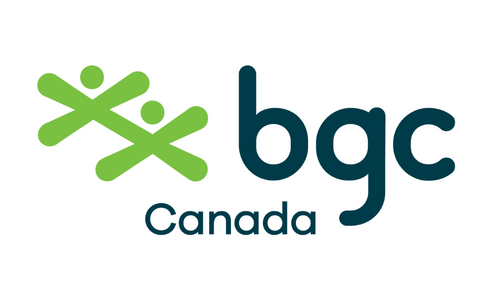Recommendations for Budget 2024
- Recommendation 1 – Expand access to BGC Clubs across Canada.
- Invest $2 million to fund community, Club and stakeholder consultations, community demographic modelling, and expansion site identification and preparation.
- Invest $20 million in short-term project-based funding to enable BGC to provide or lease the space, equipment, and staff required to create new, self-sustaining Clubs and before- and after-school spaces.
- Recommendation 2 – Invest in a thriving community service sector.
- Co-develop a labour force strategy for the community service sector, supporting staff recruitment, retention and training initiatives.
- Invest $100 million over two years into Caring for Carers, a program proposal to provide evidence-based mental health and substance use supports for frontline staff, and organizational supports to develop psychologically healthy workplaces.
- Invest $400 million into a second, adapted round of the Community Services Recovery Fund, to meet the extreme unmet demand shown in the first round from nonprofit organizations.
- Recommendation 3 – Sustain and expand the childcare sector workforce.
- Provide compensation and benefits for all staff delivering childcare, in line with living wage minimums;
- Create travel subsidies for staff working in rural and remote communities;
- Expand access to existing federal programs, including the Sectoral Workforce Solutions Program (SWSP) and Student Work Placement Program (SWPP) for nonprofit childcare operators; and,
- Prioritize immigration streams for individuals with relevant childcare credentials, as well provide as fee waivers and funding for nonprofit employers wishing to sponsor staff.
Introduction
As Canada’s largest dedicated child- and youth-serving organization, BGC Canada (formerly Boys and Girls Clubs of Canada) provides vital programs and services to more than 150,000 children, youth and families across Canada. For more than 120 years, our Clubs have been there for vulnerable children, youth, and families. Through our life-changing programs, community-based services, and relationships with peers and caring adults, BGC Canada helps kids and teens develop the skills they need to succeed.
At BGC, we know that opportunity changes everything. Children and youth who attend BGC Clubs have fewer interactions with the justice system, improved mental and physical health, and struggle less with academics, based on peer reviewed research1. Ninety percent of youth report that because of Club, they are more physically active, more confident, and have more people they like spending time with. These benefits generate more than nine dollars for every dollar invested at a Club, while ensuring that parents can stay in the workforce.2
In recent years, youth needs have changed dramatically, and Clubs have grown with them. Instead of just a quick after-school snack, Clubs now provide nearly six million meals per year – in too many cases, the only meal of the day. On top of recreation and sports programs, we offer mental health supports, and increasingly direct access to therapists. And where Clubs were founded to provide a safe space for youth outside of school hours, they’re now expanding into shelters and supportive housing for entire families.
Our recommendations for Budget 2024 are meant to ensure that youth have the supports they need to thrive in the face of emerging crises. By expanding Clubs’ presence across the country, and investing in our frontline staff, the federal government can help youth survive and thrive in this era of increasing uncertainty.
Recommendations
Expand access to BGC Clubs across Canada
BGC Canada applauded the historic investments made by federal and provincial governments to establish a national, $10/day childcare system. We also welcomed the investments made in Budget 2022 to expand nonprofit early learning childcare infrastructure. As recipients of this funding, our Clubs have seen firsthand the impact that early and sustained investment in children and youth can make.
Clubs provide high-quality childcare for infants, toddlers, and preschoolers, but families’ needs don’t stop when a child enters kindergarten. Recent polling conducted by Abacus Data for BGC Canada found that at least one-third of Canadian families need but don’t have access to before- and after-school care. Families without care options are likely to be both younger and lower income, while all parents were nearly unanimous in recommending that all children have
access to after-school care3. As children begin to age out of newly created $10/day childcare spaces, parents will once again struggle to find available and affordable care options.
BGC Clubs already support those who are at greatest risk – Indigenous and racialized children, newcomers, children with disabilities, and low-income families. At more than 600 locations, our trained staff help young people build the confidence and sense of belonging they need to overcome barriers, while reflecting the diversity of their local communities. Our before- and after-school spaces and programs are available at low or no cost, and the inability to pay has never kept a child out of a Club. Clubs also open their doors to older youth, providing teenagers with safe spaces away from home, as well as PSE and employment supports.
Last year, BGC Clubs provided nearly 6 million meals and snacks. Without regular access to food, everything in a child’s life is impacted: their ability to think and learn and their mental and physical well-being. With cost-of-living increases, we’re seeing more and more families struggle to meet basic food needs. Food insecurity is even more prominent within specific communities, as Clubs often serve communities disproportionately impacted by poverty. Children who experience chronic food insecurity will rely more heavily on the healthcare system to cope with mental health and substance dependencies.
We know that there is an enormous unmet need for our services. The federal government had previously committed to creating 250,000 new before- and after-school spaces. In response, BGC Canada had identified communities without dedicated after-school and youth organizations, with a particular focus on rural and northern communities, and communities experiencing rapid growth driven by economic development and immigration. Our growth and expansion strategy has been informed by our partner organizations across North America. In the past four years, we have grown to better serve those communities – including Calgary, Peterborough, and the Okanagan Valley – but more remains to be done.
- To ensure that all families and all youth have the care and supports they need, we recommend that the federal government fund the creation of new BGC Clubs and locations across Canada.
An investment of $2 million would fund community, Club, and stakeholder consultations, community demographic modelling, and expansion site identification and preparation. - An additional $20 million, short-term project-based investments would enable BGC to provide or lease the space, equipment, and staff required to create new, self-sustaining Clubs and before- and after-school spaces. Funding would provide four years of start-up costs for up to five new Clubs.
We also welcome the opportunity to participate in consultations on a national school food policy, and look forward to the implementation of food supports for children both during and outside of school hours.
Invest in a thriving community service sector
Like all other employers in the community services and nonprofit sector, BGC Clubs are struggling with ongoing labour shortages. Canada’s aging workforce, and new staffing pressures from the implementation of the national childcare agreements have left many Clubs struggling to find and retain qualified staff. Clubs are also reporting an increased need for mental health supports for from children, youth and families. As a result of higher workloads, labour shortages, and low pay compared to other sectors, staff report higher rates of absenteeism, personal mental health challenges, and burnout, ultimately leading many to leave the sector. Action is needed to recruit and retain the staff who will deliver new childcare spaces.
Collectively, the charities and nonprofits employ more than 2.5 million Canadians, generating more than 8% of Canada’s GDP.4 Our staff are predominantly women, and often newcomers, and are engaged in delivering programs and services desperately needed, including housing supports, immigration settlement services, and childcare. A thriving community service sector will not only provide economic benefits to our staff, but to Canadians of all backgrounds and needs.
To ensure that the community services sector can continue to deliver lifesaving programs, BGC Canada, along with the United Way Centraide Canada, the YMCA, the YWCA, Big Brothers Big Sisters Canada, CMHA, and other national charities, propose a three-pronged approach. We recommend the government:
- Co-develop a labour force strategy for the community service sector, supporting staff recruitment, retention and training initiatives.
- Invest $100 million over two years into Caring for Carers, a program proposal to provide evidence-based mental health and substance use supports for frontline staff, and organizational supports to develop psychologically healthy workplaces.
- Invest $400 million into a second, adapted round of the Community Services Recovery Fund, to meet the extreme unmet demand shown in the first round from nonprofit organizations.
Sustain and expand the childcare sector workforce
We welcomed the commitment from provincial and federal governments to create a national strategy specifically for the childcare sector. Clubs across Canada have struggled to fill vacant staffing positions, particularly in early years childcare. While we are working closely with all provincial governments to improve wages and working conditions, we recognize that the federal government has a role to play in solving childcare workforce shortages and delivering on the commitment to expand access to affordable childcare.
For example, BGC Clubs in BC currently have a 59% vacancy rate for the ECE positions required to run programming at full capacity, leaving more than 60 approved childcare spaces empty, with other programs forced to close. At the other end of the country, BGC Charlottetown has been forced to close their site in Montague, despite growing enrollment numbers across the province, because of ongoing staff shortages. Similar concerns exist in every province, and particularly in rural and northern communities.
To address these ongoing shortages, we recommend that the national strategy for the sector include:
- Increased compensation and benefits for all staff delivering childcare, in line with living wage minimums
- Expanded access to existing federal programs, including the Sectoral Workforce Solutions Program (SWSP) and Student Work Placement Program (SWPP) for nonprofit childcare operators;
- Prioritized immigration streams for individuals with relevant childcare credentials, as well as fee waivers and funding for nonprofit employers wishing to sponsor staff; and,
- Create travel subsidies for staff working in rural and remote communities.
BGC Canada also echoes the call from the National Alliance for Children and Youth (NACY) for investment in data collection specific to the child and youth sector. The child and youth sector, unlike other sectors, lacks comprehensive, national-level data about its organizations, programs, and reach. An investment of $5 million over four years could create a national survey and database of child and youth programs, as well as a benchmark of the sector’s capacity and staffing levels. This data will be crucial in identifying gaps and opportunities to strengthen the sector.
Conclusion
From rising cost of living to growing geopolitical instability, Canada faces new and emerging challenges. The community services sector, including organizations like Clubs, are crucial in providing the front line supports that children, youth and families need to thrive in the face of these crises. The federal government has the opportunity to work hand in hand with those on the front lines, and through us support children and families across the country.
Investments in before- and after-school care and the community services workforce will help build a stronger and more resilient Canada for generations to come. We look forward to working with the government to achieve this vision.
- https://www.bgccan.com/wp-content/uploads/2020/02/MCHP-BGCW-Impact-Study-2020-Summary.pdf
- https://lbgc.org/wp-content/uploads/2017/02/Return-on-Investment-Study-Highlights.pdf
- Abacus Data for BGC Canada, 2022
- https://www.imaginecanada.ca/en/About-the-sector#:%7E:text=Our%20sector%20is%20an%20economic,or%20agriculture%2C%20transportation%20and%20retail

